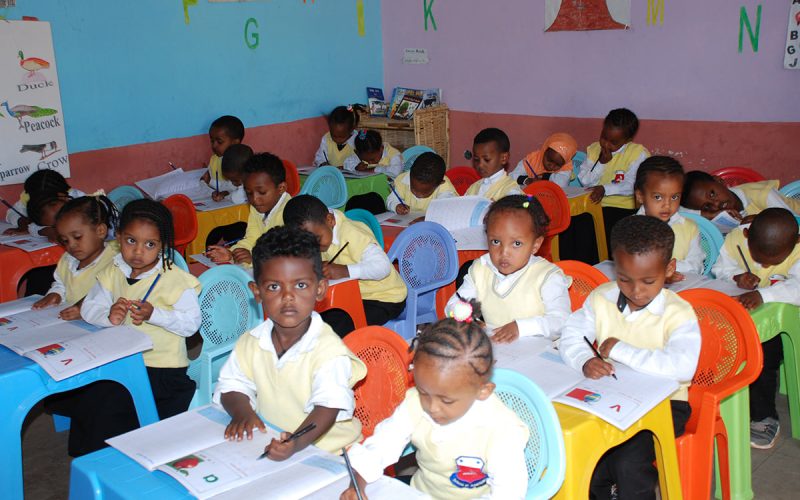Ethiopia Revokes Ban on English Language Instruction for Kindergarten Students
A year after banning the teaching of English in both public and private kindergartens, Ethiopia has reversed the decision.
The Addis Ababa Education Bureau has announced the reinstatement of English language lessons for kindergarten (KG) students, marking a significant shift in the city’s early childhood education policy.
The bureau initially introduced the ban, advocating for children to learn in their mother tongue during early childhood education.
The decision, made in 2023, was part of broader efforts to promote the use of indigenous languages at the foundational level of education.
However, the policy faced criticism from parents and educators who argued that English, as a global language, should be introduced early to provide children with better opportunities in the future.
Starting in the 2024/25 academic year, English language lessons will be offered five times a week in kindergarten classes across the city.
The Addis Ababa City Education Office has developed and distributed a new English language textbook specifically designed for pre-primary education, ensuring that both public schools and teachers are equipped to reintroduce the subject.
Prior to the ban, English had been a regular part of the pre-primary curriculum, preparing students for their transition to first grade.
However, the policy change in 2023 saw the introduction of a new curriculum that no longer separated early childhood education into distinct subjects such as mathematics, science, and language.
Instead, the curriculum was designed to focus on holistic learning without dividing it into specific disciplines.
This shift drew widespread complaints from teachers and parents alike, many of whom argued that the exclusion of English did not align with the curriculum or the needs of the students.
Critics also pointed out teachers were not given adequate training to implement the new mother tongue-focused curriculum, and that the lack of English instruction would leave students unprepared for future academic challenges.
The decision to reinstate English comes amid a broader overhaul of Ethiopia’s education system, which has been in place for over 20 years.
The reform aims to address declining academic performance, a growing lack of student engagement, and poor national exam results.
According to the Minister of Education, Professor Birhanu Nega, only 36,409 students out of the 684,205 who took this year’s national exit exam for grade 12 passed.
This translates to a pass rate of just 5.4%, with 1,363 schools failing to produce a single student who passed the exam.
The reinstatement of English in kindergarten is seen as a response to these challenges, with authorities acknowledging the importance of preparing students from an early age for academic success in an increasingly interconnected world.
